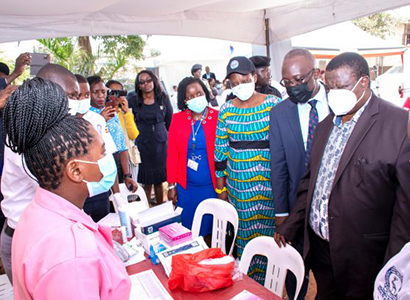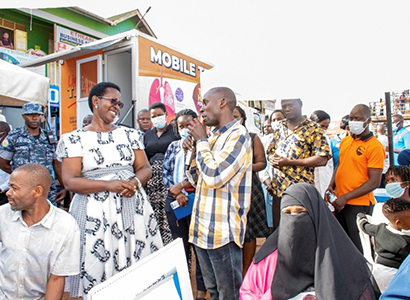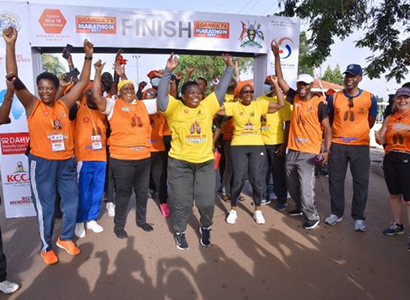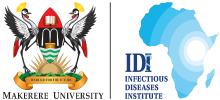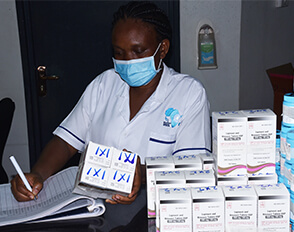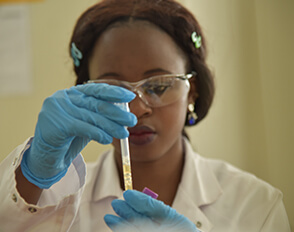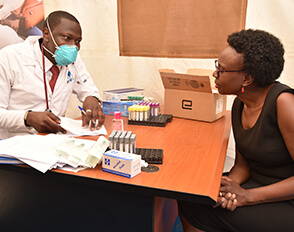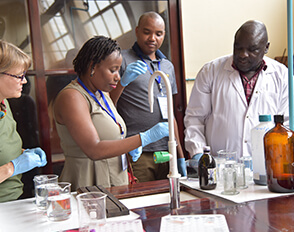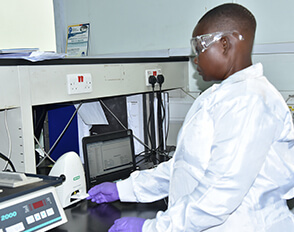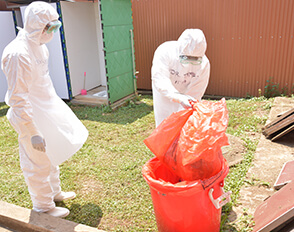
USAID Local Partner Health Services- TB (LPHS-TB)
The USAID Local Partner Health Services-TB (LPHS-TB) Activity is a five-year Cooperative Agreement implemented by the Infectious Diseases Institute Limited (IDIL) in partnership with The AIDS Support Organisation. It is aimed at contributing to the substantial reduction of Uganda’s TB burden by 2026 through scaling up of evidence-based and high-impact interventions towards the achievement of the End TB strategy targets of 90% TB treatment coverage and treatment success rate of all TB cases in Uganda. This transition award builds on the successes of the Defeat TB Activity and seeks to close the remaining gaps in TB prevention, identification, and treatment while addressing underlying health systems challenges impending Uganda’s progress towards the national goal of ending the TB epidemic by 2030.
To achieve this purpose, LPHS-TBA works to:
- Increase screening and detection of all forms of tuberculosis in infants, children, adolescents, and adults at facility and community levels.
- Initiate and complete treatment for all patients diagnosed with all forms of TB.
- Ensure strong facility and community systems to strengthen the continuum of TB prevention, screening, diagnosis, care, and treatment.
- Accelerate TB research and innovations with improved impact on program implementation.
- Enhance leadership and technical capacity of TB program at national and subnational levels to effectively guide and manage the implementation of TB control activities.
LPHS-TB Activity Coverage
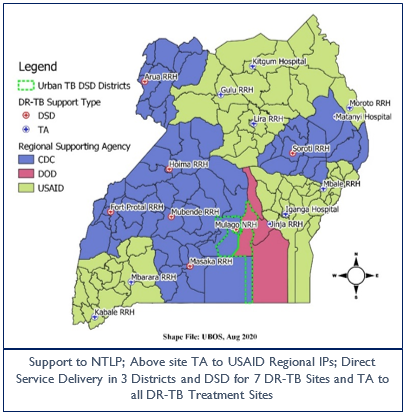
2021-2026
COVERAGE
National (NTLP) &Sub-national (Kampala, Mukono, Wakiso, and Regional Referral Hospitals)
FUNDER
USAID
IMPLEMENTER
IDI
SUB-AWARDEE
The AIDS Support Organization (TASO)
Overarching Activity approaches include
- Provision of support to the national level TB response mechanism (National TB and Leprosy Program-NTLP)
- Differentiated implementation models for urban and rural TB response with emphasis on Kampala region
- Strengthening the application of continuous quality improvement (CQI) principles.
- Use of digital technologies to expand service delivery to accelerate progress toward the ‘End TB’ targets.
Key Achievements in PY1
- Screening and detection of all forms of tuberculosis in infants, children, adolescents, and adults at facility and community levels increased.
- TB case detection improved from 72% to 105% in KMW and 88% to 110% nationally. This improvement translates to 2,191 additional cases in KMW and 17,177 cases nationally compared to the previous year.
- DR-TB treatment coverage among estimated RR cases increased from 29% to 41% at 7 DSD sites and from 34% to 46% nationally.
- Childhood TB case notification improved from 52% to 87% in KMW and 75% to 112 % nationally.
- All patients diagnosed with all forms of TB initiated and completed treatment.
Drug sensitive TB- Drug-sensitive TB: The treatment success improved from 84% to 84.5% in KMW and 85% to 87.7% nationally.
- Drug-resistant TB: The treatment success improved from 79% to 81% at DSD sites and 79% to 83.2% nationally.
- Facility and community systems for TB prevention, screening, diagnosis, care, and treatment strengthened.
- Engagement of 50 community linkages facilitators and community-owned resource persons at 25 high-volume sites in KMW. Community intervention contributed a 19.5% (2,439) increment to case notification.
- The CAST TB campaign, community TB screening, and diagnostic efforts contributed to approximately 4,000 additional TB cases nationally.
- Contact Investigating coverage rate is 88% in KMW and 87.9% .
- Accelerating TB Research and Innovations.
- A total of eight (8) national TB virtual research forums were held in which research studies were discussed. These were coordinated by LPHS-TB Activity.
- Thirteen (13) institutions participated in the research forums during PY1.
- Four (4) research questions were investigated by the Operations Research team.
- Sixteen (16) abstracts were peer-reviewed and presented at major conferences: Union World Conference on Lung Health (6), the 9th National Health Care Quality Improvement Conference (4), and the 5th Annual National Tuberculosis and Leprosy Stakeholders Conference (6).
- Improved leadership and technical capacity of TB program at national and subnational levels.
- Secondment of staff at NTLP, 87.8% of positions on the NTLP organogram are filled.
- Domestic financing for TB at 13%
- The LPHS-TBA supported the development of a road map for the integration of TB in the HIV workplace policy and labor non-discrimination regulations.
- Supported the Ministry of Health to implement the TPT Last Mile Surge which resulted in over 40,000 PLHIV initiating TPT.
Photos of Major events held

